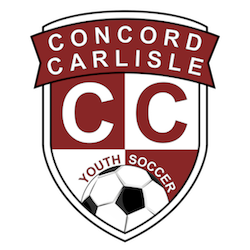CCYS adheres to a Zero-tolerance policy for bad or disruptive behavior by anyone participating in our program. Please review the guidelines below for how to handle such behavior in players, parents, or coaches. Should you see behavior that is disruptive to the club and you would like to discuss it, please contact one of the program directors as noted on the Contacts page of our website.
Player Behavior
If a player becomes disruptive to team activities, engaging in unsportsmanlike behavior, swearing or name-calling, or endangering themselves and other children, it is the policy of the club to address such behavior immediately using firm but calm tones of voice and following the steps outlined below.
Feedback:
When a misbehavior occurs, we expect the coach to explain his or her expectations and why those expectations are important, using a firm but pleasant voice. When a misbehavior occurs, the coach is expected to:
- Pull the player out from the group to speak to him or her one-on-one.
- Position himself or herself at eye-level with the player and give feedback.
- Give his or her observation: "When you were on the sideline, I saw you do ....
- Describe the impact of the "When you do that, it disrupts the team... and causes..."
- Set his or her expectation: "In the future, if you want to express ..., please use words like ....."
- Confirmation: "Will you please repeat for me: What have I asked you to do?"
- As appropriate, allow the player time to briefly express their opinions and feelings to you.
- If the player is upset and not able to control himself or herself, we expect the coach to ask the player to sit apart from the group and allow him or her time to regain control of him/herself before returning to the group. Indicate that he or she may return when he or she can behave appropriately.
- When appropriate, invite the player to rejoin the group.
- If appropriate, ask the misbehaving player to apologize to other players who were affected by the misbehavior
Warnings:
If a player repeats a misbehavior, if the coach considers the misbehavior serious, and the feedback approach outlined above does not change the player's behavior after a reasonable number of attempts on the coach's part, the coach may issue a "Warning" to the player, indicating that, if he or she repeats the behavior again, the coach will suspend him or her from the team until he or she is able to correct the behavior problem. When the coach issues a Warning to a player, the coach will notify the player's parents at the end of the practice or game to explain the circumstances and the consequences of continued misbehavior (i.e. suspension). The coach will also notify the Age Group Director of the Warning.
Suspension:
If the misbehavior occurs again, and the coach determines that suspension is the appropriate next step, the coach will tell the player and the parents at the end of the practice or game that the player is suspended for, at minimum, one week. The coach and the Age Group Director will work with the parents to outline mutually agreeable conditions under which the player may return to the team. Once a player has returned to the team, an additional misbehavior may, at the discretion of the Age Group Director or Club President, result in suspension of the player from the team for the remainder of the season.
Parent Behavior
We do not accept unruly behavior by any parent for any reason on any occasion. This behavior can include, yelling at a player, speaking harshly to a player, questioning the motives of a coach, referee, or other game official. There is no tolerance for verbal or written abuse for any reason. Such conduct is inappropriate and will be handled in the following manner:
- If the parent exhibits this behavior, the receiving adult will ask the parent to take a moment to become composed. The issue at hand will be talked out in a responsible, calm and coherent manner. If the parent does not adhere to these guidelines then,
- The parent will be asked to leave the field, meeting, etc. The receiving party will make an attempt to contact that parent to discuss the negative situation and to try to find a rational solution. If the parent still does not adhere to the guidelines set forth,
- A verbal and written warning will be presented to the adult asking for the negative behavior to end. If the negative behavior continues to exist,
- The parent will not be allowed at any CCYS function and the Board of Directors will be notified.
